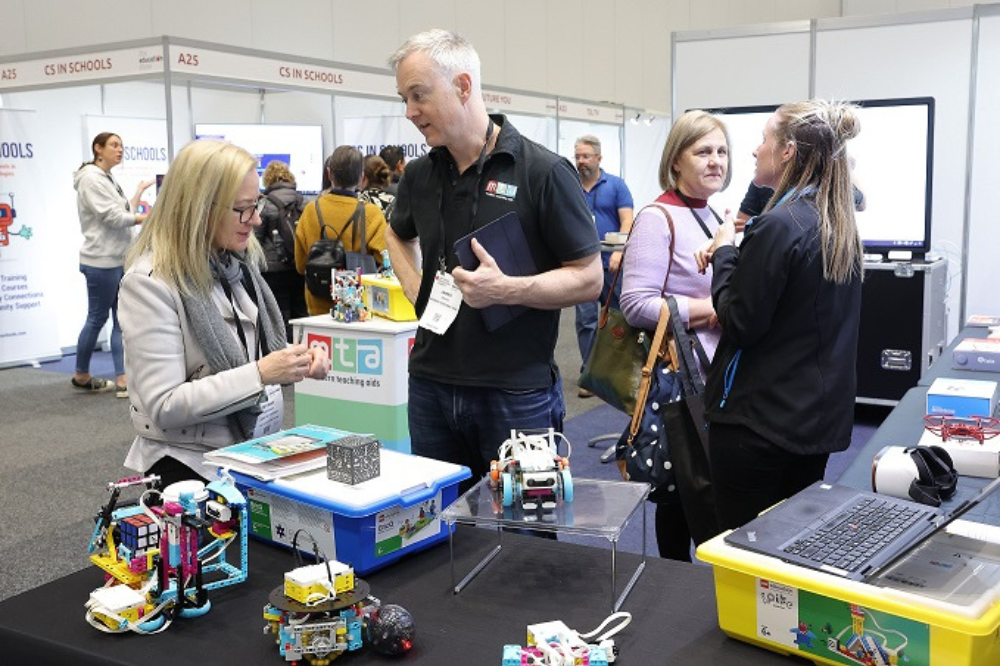
With careers in AI, STEM and sustainability set to become more prominent over the new few years, schools must ensure they deliver the learning materials to develop tomorrow’s problem solvers and leaders, experts say.
According to Deloitte, nearly 10% of Australia’s large firms that have 200 or more staff are using AI in their day-to-day operations. To help schools adapt to AI in a safe and responsible way, the Federal Government developed the inaugural Australian Framework for Generative Artificial Intelligence in Schools, which was formally implemented at the start of this year.
“Importantly, the framework provides for the prevention of plagiarism and the protection of privacy and data rights – areas of major concern following the rise of AI,” said Marie Kinsella, CEO of the International Expo Group – the organisers of the National Education Summit, taking place in Melbourne from 14 to 15 June 2024.
“Understanding how to embrace AI education within this framework is key and will be discussed and unpacked at the upcoming National Education Summit.”
However, Kinsella says it’s not only the technological advances, such as the adoption of AI, that children need to be prepared for, but also the challenges imposed by climate change.
“Australian schools need to ensure that they are delivering the learning materials and opportunities needed to develop tomorrow’s problem solvers and leaders.”
In addition to tech know-how, sustainability education is a vital component of the Australian school curriculum, Kinsella noted.
“Schools have increasingly been looking at how they can equip students with the knowledge, skills and attitudes necessary to address the complex challenges of our world,” she said.
“The Australian education system incorporates sustainability principles across various subjects and levels. But we need to do more to develop holistic, multidisciplinary education that integrates the social, environmental and economic pillars of sustainability and enables learners to contribute to more sustainable societies.”
Giving teachers a head start
Kinsella said ‘AI in the Classroom’ and ‘Sustainability in Schools’ are two key pillars at the National Education Summit this year.
• AI in the Classroom
In the AI in the Classroom sessions, visitors will hear from Dr Raul V. Rodqriguez (Vice President of Woxsen University in Kamkole, India), whose area of expertise lies at the intersection of cognitive psychology with machine learning, deep learning, natural language processing, computer vision, robotic process automation, and quantum AI.
Rounding out the schedule is Chris Bush (Head of Student Voice and Leadership at University High School), who will demonstrate how AI can be used for curriculum planning, differentiation, marking and feedback. In addition, David Howard (Head of Digital Learning and Practice at Wesley College), will explain ‘how to build a custom AI tutor for your school’.
• Sustainability in the Classroom
Opening the Sustainability in the Classroom session in Melbourne is Katie Pahlow (Director of Regions and Community Action at Sustainability Victoria), who will explore the award-winning sustainable schools program, her organisation has spearheaded since 2008. The program has helped schools save more than $45 million in resource costs and avoid over 110,000 tonnes of greenhouse gas emissions.
The session on Sustainability in Schools will also include a workshop that will unpack the learnings from a 2023 Google-funded partnership project between Design and Technology Teachers Association (DATTA) and Victoria and Environment Education Victoria (EEV). Peter Murphy (Program Manager at Banyule Nillumbik Tech School on behalf of DATTA Victoria), and Marika Wong, Education and Curriculum Support Officer at EEV, will guide the workshop.
Ms Jo Connor (Executive Officer at EEV), and Ms Maud Cassaignau, (Architect and Urban Designer), will present a session on exploring climate adaptation strategies for school grounds.
“The National Education Summit supports educators at all levels of K-12 education. With five conferences to choose from, the Summit presents teachers with a platform to engage in new concepts, share ideas, and hear about new developments around what classrooms might look like in 1 to 5 years from now. Attendees can also claim PD hours for their attendance,” concludes Marie.
Taking place from 14 to 15 June, at the Melbourne Convention & Exhibition Centre the Show brings together Australia’s leading education experts for two days of conferences, workshops and seminars, as well as free sessions and an exhibition.


